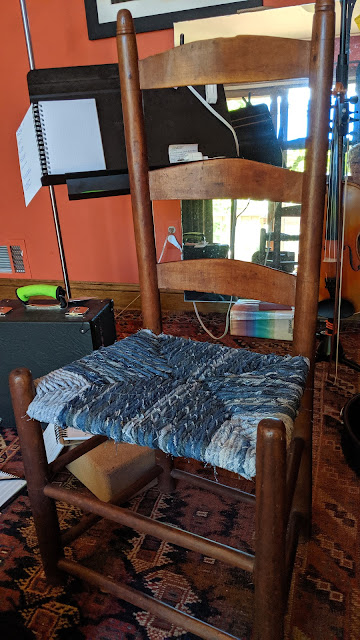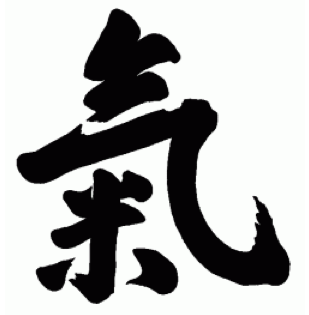Misconceptions about Aikido
When I mention to others that I teach aikido I get a variety of reactions, most of which are based on misconceptions. Some seem very confused, as if they can't put this idea together with the person they know. Perhaps it's because most people think of martial artists as young, muscular, and male, and I am none of these. Yet I have been practicing Kokikai Aikido for over 16 years and have been teaching for 8 years.
Misconception 1. I bet you could kick my ass.
Reality: It would never occur to me. In practicing aikido I have learned not to react to anything that is not a threat.
Misconception 2. It doesn't make sense for a person who is committed to more peaceful interaction to be involved in a martial art.
Reality: Aikido is an ethical form of self-defense. In Kokikai Aikido, we practice that the greater the threat, the more we relax. This enables us an infinite amount of flexibility, even right in the middle of the response to an attack. I've heard this story - though it may be apocryphal - about Maruyama Sensei. In the 1970s the main dojo was in a not-so-great part of Philly. Someone attempted to mug him. As he was throwing the attacker to the ground, (so I have been told), Sensei held out his foot so that his attacker's head would not smash on the pavement. The man ran away, and Sensei did not have to live with the idea that he might have caused permanent damage.
Misconception 3. (No one says this one out loud.) You can't be any good because you're a. a girl and b. too old.
Reality: Women are at an advantage when practicing aikido, because we quickly understand the fundamental concept that greater strength can arise from being relaxed and focused, than from using "muscle power." As long as you're being attacked by a human being (not a rock) you can move your attacker by moving their mind. Women don't have any illusions that they might be able to win using muscle strength, so they don't waste years trying to use muscle before they realize there's another way. In my experience women attain an advanced level of aikido practice sooner than men for this reason.
It follows that the practice such a martial art would improve with age.
Misconception 4. Not so much of a misconception as a question in the back of peoples' minds: why would you study a martial art unless you are in immanent fear of attack, or you just like beating people up?
For me, Kokikai Aikido has been a path for personal growth and self-realization. It is a strange paradox but the more I practice, the more compassionate I feel towards others, even people who bother me. My life has become more calm, I feel less anger, and I feel more able to navigate my life on my own terms. Rather than leveling out, as I practice, this feeling has grown. This gives me a powerful incentive to continue practicing this art throughout my lifetime.
Misconception 1. I bet you could kick my ass.
Reality: It would never occur to me. In practicing aikido I have learned not to react to anything that is not a threat.
Misconception 2. It doesn't make sense for a person who is committed to more peaceful interaction to be involved in a martial art.
Reality: Aikido is an ethical form of self-defense. In Kokikai Aikido, we practice that the greater the threat, the more we relax. This enables us an infinite amount of flexibility, even right in the middle of the response to an attack. I've heard this story - though it may be apocryphal - about Maruyama Sensei. In the 1970s the main dojo was in a not-so-great part of Philly. Someone attempted to mug him. As he was throwing the attacker to the ground, (so I have been told), Sensei held out his foot so that his attacker's head would not smash on the pavement. The man ran away, and Sensei did not have to live with the idea that he might have caused permanent damage.
Misconception 3. (No one says this one out loud.) You can't be any good because you're a. a girl and b. too old.
Reality: Women are at an advantage when practicing aikido, because we quickly understand the fundamental concept that greater strength can arise from being relaxed and focused, than from using "muscle power." As long as you're being attacked by a human being (not a rock) you can move your attacker by moving their mind. Women don't have any illusions that they might be able to win using muscle strength, so they don't waste years trying to use muscle before they realize there's another way. In my experience women attain an advanced level of aikido practice sooner than men for this reason.
It follows that the practice such a martial art would improve with age.
Misconception 4. Not so much of a misconception as a question in the back of peoples' minds: why would you study a martial art unless you are in immanent fear of attack, or you just like beating people up?
For me, Kokikai Aikido has been a path for personal growth and self-realization. It is a strange paradox but the more I practice, the more compassionate I feel towards others, even people who bother me. My life has become more calm, I feel less anger, and I feel more able to navigate my life on my own terms. Rather than leveling out, as I practice, this feeling has grown. This gives me a powerful incentive to continue practicing this art throughout my lifetime.




Comments
Post a Comment